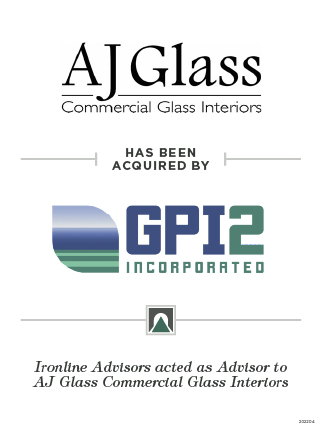By Brittan Bailey
As we wrap up 2019 and look to 2020, company owners, investors and executives are considering what the new year will bring.
Earlier this year, Ironline published a 2019 outlook “M&A Dealmakers Optimistic About 2019” which highlighted transaction activity would remain robust based on favorable M&A market conditions. These predictions came to fruition with continued strong deal flow and elevated valuation levels as demand continues for high quality companies despite possible concerns over the current global economic and political map.
Heading into 2020, we expect the M&A market will remain active as buyers continue to seek opportunities to implement growth initiatives, gain capabilities and drive efficiencies in their operations in preparation for any future national and global uncertainties.

Brittan Bailey
CHIEF FINANCIAL OFFICER
Transaction volume and multiples trends are not anticipated to vary dramatically in the next year. According to the EY Global Capital Confidence Barometer, 52% of respondents are planning to actively pursue M&A in the next twelve months and 68% of respondents expect improved M&A market as the prolonged deal upcycle continues. A recession in the near term is not considered a significant threat by respondents. A majority does not expect a severe downturn, and of the minority that do, say it is not likely until 2021 or 2022. Despite these concerns, the ability to transform operations expeditiously through a transaction vs. organic growth will continue to drive the deal market. Particularly in the middle market, well run companies with a diverse customer base and financial growth trends remain in high demand. Bolt-ons that complement the existing business and offer an expanded choice of products and services for existing and new customers continue to be on the radar for corporations as well as private equity led companies.
We look forward to continuing to work with our clients to navigate the 2020 M&A market.
Ironline continues to assist our clients in the evaluation and implementation of a variety business transition alternatives including the monetization of their companies as well as growth strategies via acquisitions in the distribution, healthcare, manufacturing, energy, business services and industrial sectors.
















